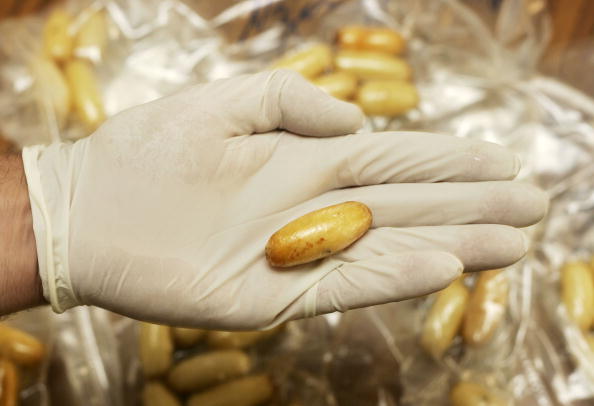So-called “drug mules” will get more lenient jail terms under new guidelines on drugs offences that come online at the end of next month.
The detailed guidelines by the Sentencing Council are the first to be produced on drug offences. According to the Deputy Chairman of the Sentencing Council, Lord Justice Hughes, the guidelines reinforce current sentencing practice.
Lord Hughes said in a statement: “Drug abuse underlies a huge volume of acquisitive and violent crime and dealing can blight communities. Offending and offenders vary widely so we have developed this guideline to ensure there is effective guidance for sentencers and clear information for victims, witnesses and the public on how drug offenders are sentenced.”
The guidelines for the first time set out different levels of sentencing for different roles played by offenders.
For example, people running a gang selling class A drugs on the street, such as cocaine and Ecstasy, will typically face four years in jail.
However, members of the same gang whose role is much more peripheral or who have little knowledge of the scale of the operation might face only a community order.
The guidelines pave the way for an increase in sentences for those guilty of large-scale production offences.
According to campaigners for the legalisation of cannabis, the guidelines enshrine in legislation the use of cannabis for medication as a mitigating factor.
The guidelines also bring down the sentencing for drug mules – those who traffic drugs under coercion, exploitation or ignorance. Sentences will have a starting point of six years, half that of those playing a lead role in drug supply.
The Association of Chief Police Officers (ACPO) welcomed the guidelines. Chief Constable Tim Hollis, ACPOs spokesperson on drugs, said in a statement: “The Council has clearly given a good deal of consideration to the new guidelines and has produced a document which provides the police and our criminal justice partners with consistent guidance yet still provides the courts with flexibility to deal with each case on its own merits where appropriate.”
Martin Barnes, chief executive of DrugScope, said he hopes as a result of the guidelines more judges will refer drug users to treatment as part of a sentence. “Good quality treatment is instrumental to breaking the cycle of drugs and crime which blight the lives of many individuals and communities,” Barnes said in a statement.
“DrugScope has long had concerns about the numbers of women involved in low level supply and other offences as a result of violence and intimidation: far too many end up in the courts and in our prisons. We believe that these guidelines are a positive step forward in addressing this problem.”







